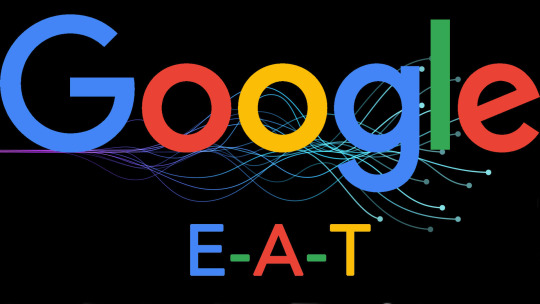#website'scredibility
Explore tagged Tumblr posts
Text
The Beginner's Guide to Search Engine Optimization (SEO)

The Beginner's Guide to Search Engine Optimization (SEO) This article is a beginner's guide to Search Engine Optimization (SEO). For anyone who owns, manages, monetizes, or promotes online content via Google Search. The guide provides a complete overview of the basics of SEO according to best practices. It does not provide any secrets that will automatically rank your site first in Google. But by following best practices, it'll hopefully make things easier for search engines to crawl, index, and understand your content. Small website modifications: SEO is often about making small modifications to parts of your website. These changes may seem like incremental improvements when viewed individually but when combined with other optimizations, they could have a noticeable impact on your site's user experience and performance in organic search results. User experience: You should build a website to benefit your users, and any optimization should be geared towards making the user experience better. One of those users is a search engine, which helps other users discover your content. SEO is about helping search engines understand and present content. The optimization topics in this guide apply to sites of all sizes and types. Glossary: The guide contains a short glossary of important terms used in the guide, including Index, Crawl, Crawler, Googlebot, and SEO. Site indexing: To determine whether your site is in Google's index, you can do a site search for your site's home URL. If you see results, you're in the index. If not, it could be because the site isn't well connected from other sites on the web, Google hasn't had time to crawl it yet, the design of the site makes it difficult for Google to crawl its content effectively, Google received an error when trying to crawl your site, or your policy blocks Google from crawling the sit Getting on Google: Google is a fully automated search engine that uses web crawlers to explore the web constantly. Google is always looking for sites to add to their index. Most sites listed in Google's results are not manually submitted for inclusion, but found and added automatically when Google crawls the web. Following the Search Essentials can help make your site appear in search results. Google Search Console provides tools to help you submit your content to Google and monitor how you're doing in Google Search. Website essentials: The Search Essentials outline the most important elements of building a Google-friendly website. The essential questions to ask yourself about your website when you get started include: - Whether your website shows up on Google - Whether you serve high-quality content to users - Whether your local business shows up on Google - Whether your content is fast and easy to access on all devices - Whether your website is secure. Hiring an SEO expert: An SEO expert is someone trained to improve your visibility on search engines. Following this guide, you will learn enough to be on your way to an optimized site. In addition to that, you may want to consider hiring an SEO professional that can help you audit your pages. Deciding to hire an SEO is a big decision that can potentially improve your site and save time. Many SEO's and other agencies and consultants provide useful services for website owners. Including a review of your site content or structure & technical advice on website development; such as hosting, redirects, error pages, & more. Read the full article
#crawl#domainauthority#GettingonGoogle#Glossary#HighDA#highdomainauthority#HiringanSEOexpert#index#optimizingyourwebsite#seo#Siteindexing#Smallwebsitemodifications#understandyourcontent#Userexperience#Websiteessentials#websiteoptimization#website'scredibility
0 notes
Text
Google's E-A-T (Experience, Expertise, Authoritativeness, & Trustworthiness) guidelines

Google's E-A-T (Experience, Expertise, Authoritativeness, & Trustworthiness) guidelines Having a good online presence is essential for businesses looking to increase their search engine rankings and revenue during 2021. Google's E-A-T guidelines offer a great way to ensure a website's success. E-A-T stands for Experience, Expertise, Authoritativeness, & Trustworthiness. This concept was first introduced by Google in 2014, and continues to grow in importance each year. Google’s search quality rater guidelines include insight into how the company instructs quality raters to evaluate a content creator’s expertise and trustworthiness. Google uses real people, not machines, to evaluate websites. This process is essential to Google’s success as an industry leader in search engine optimization. While E-A-T is not necessarily a direct ranking factor through the algorithms, its data helps Google improve its algorithms. Businesses, especially those that offer advice or products related to medical, legal or finances (Your Money or Your Life websites), can benefit from E-A-T guidelines by demonstrating first-hand experience. This will help them to meet Google’s standards for quality and trustworthiness and improve their chances of ranking high in the search results. By following Google’s E-A-T guidelines, businesses can increase their chances of success and ensure that their content meets the highest standards for quality and trustworthiness. Having a strong presence online is essential for businesses in 2023 looking to increase their search engine rankings and revenue. Google's E-A-T (Experience, Expertise, Authoritativeness, & Trustworthiness) guidelines offer a great way to guarantee a website's success. As Google's search quality rater guidelines explain, the company uses real people, not machines, to evaluate websites. This is key to Google's success as a leader in search engine optimization. Following the E-A-T guidelines helps businesses meet Google's standards for quality and trustworthiness and gives them a better chance of achieving high rankings in the search results. Businesses that offer advice, products, or services related to finances, medical, or legal matters (Your Money or Your Life websites) especially can benefit from E-A-T as it allows them to demonstrate their expertise and trustworthiness. By adhering to these guidelines, businesses can ensure that their content meets the highest standards for quality and trustworthiness and maximize their chances of success. Read the full article
#Authoritativeness#domainauthority#Experience#Expertise#HighDA#highdomainauthority#optimizingyourwebsite#seo#Trustworthiness#websiteoptimization#website'scredibility
0 notes
Text
Google's latest update - E-E-A-T Search Rater Guidelines

Googles latest update to its quality rater guidelines includes an additional aspect in the evaluation of search ranking systems: Experience. E-A-T, which stands for expertise, authoritativeness, and trustworthiness, is a commonly used concept in evaluating the relevance and helpfulness of search results. However, in order to better assess the quality of the results provided, Google has decided to add an "E" for experience.
Googles latest update
Experience in this context refers to the degree to which content demonstrates that it was produced through first-hand, life experience on the topic at hand. This can include things such as actual use of a product, having visited a place, or communicating personal experiences. The addition of experience to the evaluation process is intended to help users find content that is both relevant and useful to them. For example, if someone is searching for information on how to correctly fill out their tax returns, they would likely want to see content produced by an expert in the field of accounting. However, if they are searching for reviews of a tax preparation software, they may be more interested in seeing a forum discussion from people who have experience with different services. The updated search rater guidelines also include clearer guidance on the importance of original and helpful content, emphasizing that helpful information can come in a variety of different formats and from a range of sources. It is important to note that these guidelines are used to evaluate the performance of various search ranking systems and do not directly influence ranking. They can also be useful for creators looking to understand how to create successful content for Google Search.In conclusion, Google's latest update to the quality rater guidelines is aimed at providing a more nuanced approach to evaluating the relevance and helpfulness of search results. By adding an "E" for Experience, Google hopes to better capture the nuances of how people look for information and the diversity of quality information that exists in the world. This update is not intended to fundamentally change the principle that Search seeks to surface reliable information, especially on topics where information quality is critically important. Read the full article
#domainauthority#E-A-T#E-E-A-T#E-E-A-TSearchRaterGuidelines#Experience#Google'slatestupdate#HighDA#highdomainauthority#optimizingyourwebsite#seo#successfulcontentforGoogleSearch#websiteoptimization#website'scredibility
0 notes